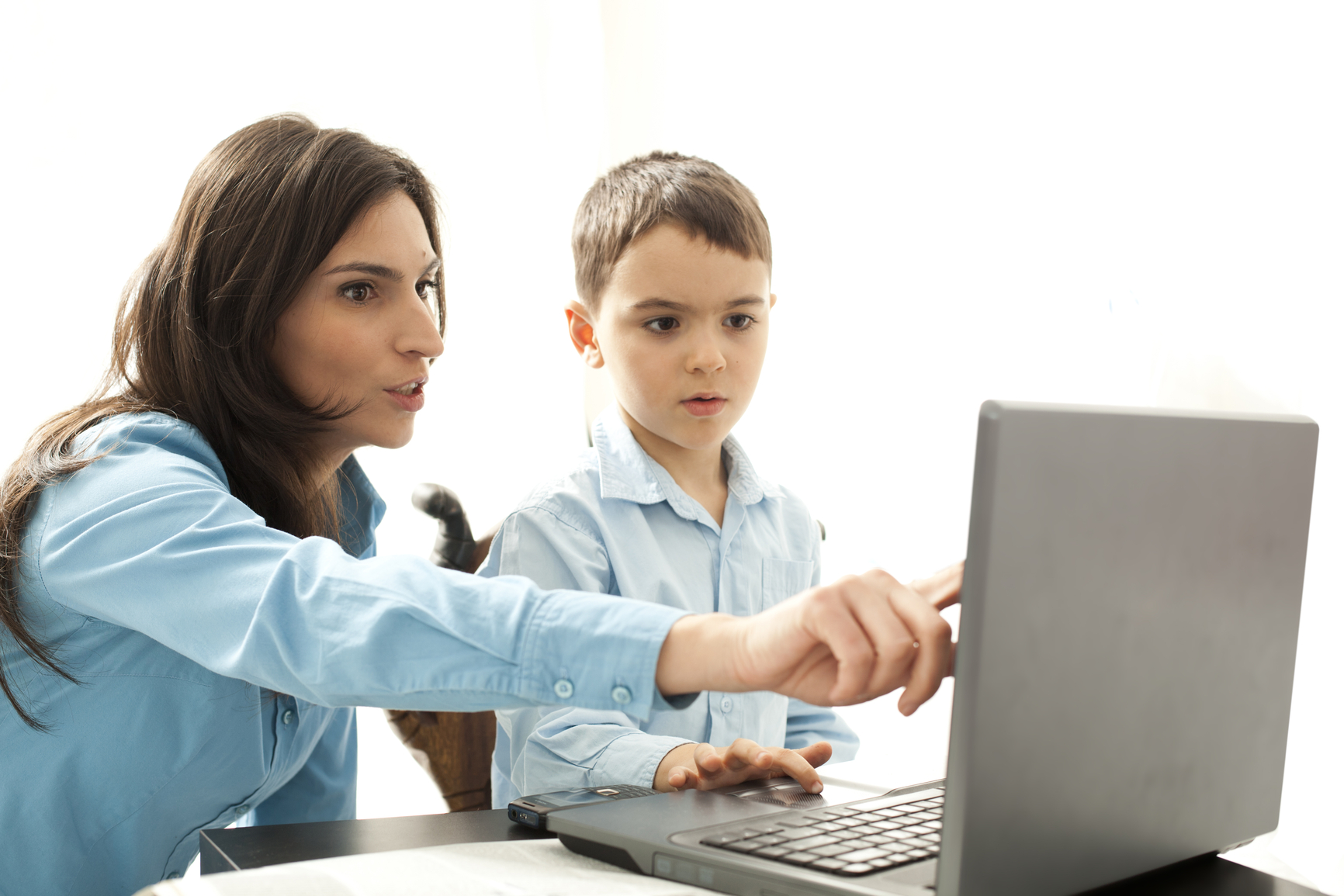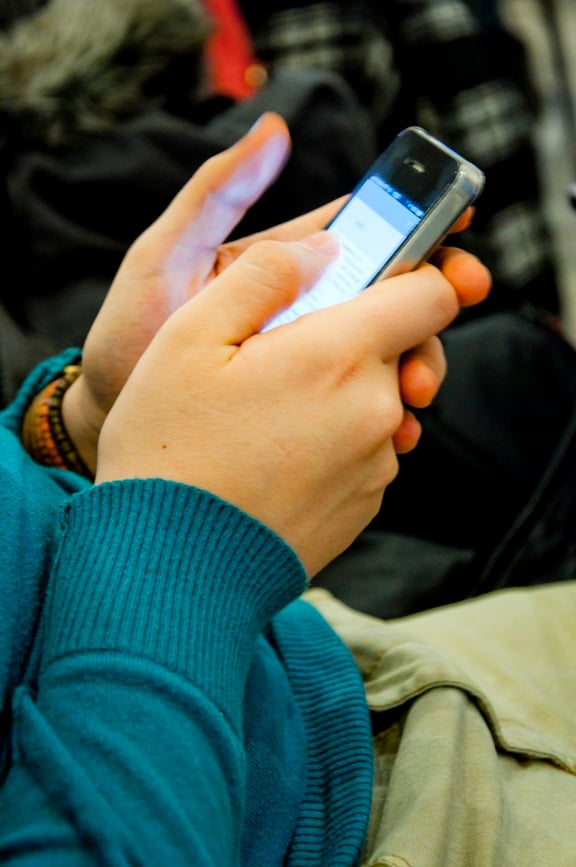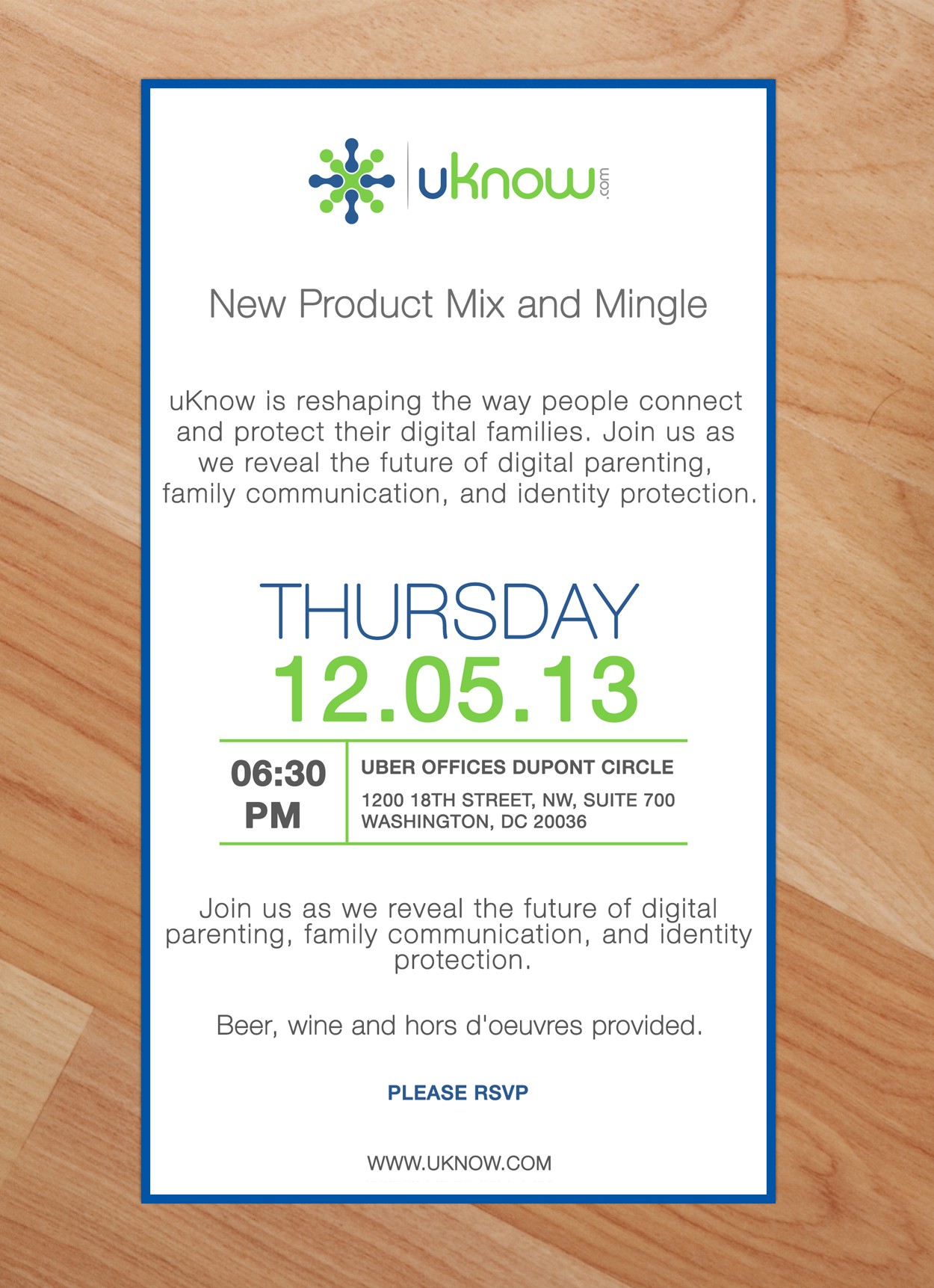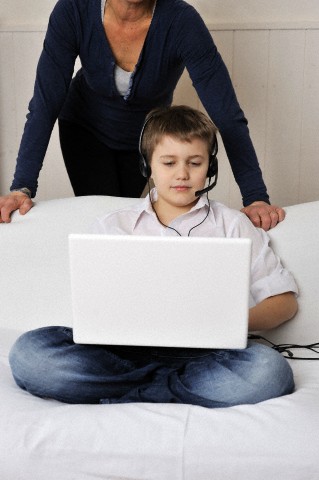A new social network-related issue that has come up in recent years is the debate about student-teacher friendships within online networks. Find out what happened in this particular instance and learn more about how student-teacher social profile friendships can affect each party. This article was originally published on Psychology Today.
Read More »Parental Controls are Vital to your Child's Safety
Parental controls are a vital part of today’s technology for parents. From smart phones to computers there is a lot of content out there which makes a lot of anxiety for parents. Compared to their tech-savvy children parents often worry they cannot keep up with their use of technology. The reality is that you do not need to be a complete computer genius to regulate your child's technology usage. Below are some tips to do this:
-
Talk to your children about what you think is acceptable. What sites you want them to stay away from and who they are allowed to text. Give them boundaries and let them know if they break those, that there will be punishment for their actions.
-
Monitor what websites they go to. Pay attention to where they go online and be sure to check their browser history.
-
Make sure your children are instructed to never give out vital information about you or other family members. This includes names, addresses and phone numbers.
The Decline of Online Privacy
High-profile data breaches and issues arising over who actually owns personal data have raised important questions about online privacy and the security of personal information. There is a growing sense of fear and powerlessness among the public as businesses and governments continue to gather more and more personal data. The truth is, digital privacy is becoming a myth and it will take a combination of personal responsibility and policy changes to change the tide.
Read More »Is Public WiFi Safe?
Public WiFi is any network connection that doesn't require a pass code or key code to access. They are open to anyone who is within range. Devices such as cell phones, tablets and laptops will pick up a signal and begin to connect with it if their WiFi setting is turned on. It makes no difference if the signal is being transmitted from a person's home, the local coffee shop or a local business.
The question of safety is always on your mind when dealing with your children and your financial information. With more and more teens having internet capabilities on their cell phones and other devices, parents are concerned with the safety of public WiFi networks. The problem is not with the networks, so much as with the devices being used to connect with it.
Who Can Connect With Public WiFi
Once an internet signal is set up and broadcasting, anyone can access it that has the pass code or access to the router. If there is no code, anyone can pick it up. This includes
-
your children
-
your neighbors
-
people passing by in vehicles
-
people walking within a certain distance
-
hackers
In Defense Of Texting, My Favorite Parenting Tool
This article is from the Huffington Post by Senior Columnist Lisa Belkin. Check out how one parent feels towards texting -- and why she loves it for her children so much.
Yes, I know the dangers. That it affects the brain like an addictive drug. That it shortens our attention spans, and reduces our sleep, increases our stress and keeps us from interacting meaningfully with our kids. I have read all the studies and agree we should all back away from our screens, put down our phones and look each other in the eye when we talk.
Read More »Digital Parenting: 7 Surprisingly Inspiring Kids' Tech Trends for 2014
This article was originally posted on the Huffington Post by Caroline Knorr, Common Sense Media parenting editor.
From the iPotty to The Smurfs 2, 2013 gave us some real stinkers. And attention-grabbing stories about cyberbullying and sexting seemed to dominate the news.
But for a lot of parents, the negative headlines don't track with their families' experience of technology. Many folks are seeing their kids learn, grow and benefit from innovations in the tech world.
Check it Out: uKnowKids Featured in Yahoo! Tech
uKnowKids was featured prominently in Yahoo! Tech and we are thrilled. Check out part one of the article below and share with friends and family!
How to Monitor Your Kids Without Turning into the NSA
Should you spy on your kids? The technology to do it is certainly cheap and plentiful. If you want to, you can install software on their computers that copies you on everything they type and everything they look at. You can turn their phones into digital bloodhounds that map everywhere they go. You can install cameras in your home and watch your kids from any Internet device.
All of that is perfectly legal. Parents are within their rights to monitor their minor children on any device they use, notes Tatiana Melnik, a data privacy and security attorney in Tampa, Fla. Practically speaking, however, it’s not as simple as it sounds, especially as your little darlings morph into surly adolescents. Do it badly, and it can backfire on you in a big way.
Whether you choose to use tech to monitor your kids is something is only you can decide. But if you do, here are a few simple rules.
Use Your Parental Intelligence to Parent Smarter, Not Harder
There comes a time in every parent's life, when he or she realizes they start sounding like an old person. It's a sobering moment. One when you hear yourself talking about "back in my day" or "when I was your age" and you begin the long and arduous path of beating a dead horse with tidbits of what made your generation better than your children's.
5 Ways to Monitor Your Child Online Without Invading Their Privacy
Monitoring your kid's private life doesn't come easy. You need to watch out for your child without invading their privacy -- possibly limit their experience while still allowing them freedom to explore life. It's a tricky balance, and it's not the same for everybody. But, there's plenty you can do to try to make sure your child stays safe on the Internet without losing his trust. The following list shows different ways you can keep your child and the computer in a safe zone without altering the experience.
Did you know that just about every social media website out there has an age limit? For example, Facebook doesn't let people under 13 join their network. Unfortunately, they can't truly enforce this, as all they do to verify your age is ask you how old you are. Make sure that whatever social media account your child uses, they have passed the appropriate age limit designated by the site; they designate these ages for good reason.
To My 13-Year-Old, An iPhone Contract From Your Mom, With Love
Check out this blog post that we found on the Huffington Post a year ago about a mother who gave her son an iPhone with a strict contract for Christmas. And check back later today because we will be posting the follow up from author Janell Burley Hoffman, entitled "What I Know One Year After Giving my Teenager an iPhone Contract".
Teens Creating Fake Facebook Profiles
This article originally ran on Sue Scheff's Blog, Navigating the Internet in Safety. We appreciate the kind words, Sue!
I was tired of reading the articles about teens exiting Facebook. I am sure the studies are done efficiently, but I still know that teens will be teens.
Recently I wrote an article for Huffington Post Parents, “Are Teens Really Leaving Facebook?”
As I said, I doubt it — it is more likely they are creating alias accounts to escape the prying eyes of adults, specifically their parents. Maybe they don’t have anything to hide, but they simply want to express themselves without having to explain themselves.
10 New Year's Resolutions for Digital Families
7 Practical Tips for Parenting Digital Natives
This article was originally published on the Huffington Post by Linda Esposito.
"What are your recommendations for balancing technology use with socializing face-to-face?" This question was directed to a panel of psychologists at our recent high school PTA meeting. A universal parenting dilemma in our social media landscape, if ever one existed post-1999.
You Are Invited to uKnow's New Product Mix and Mingle Event!
uKnow is having a new product launch party, and you are invited! If you are in the Washington, DC area come see for yourself how we are changing the way families connect and protect one another online and via mobile phones. Beer, wine, hors d'oeuvres and great networking opportunities will be served!
uKnow in Bisnow: Protecting Kids Just Got Easier

The thought of teens and technology makes most parents cringe. But one DC-area tech startup is making it so teens and parents can live in cyber harmony. (We're still not going to "friend" you on Facebook, grandma.)
Digital Parenting: The Top 5 Apps Every Digital Parent Should Have
Do you wish you could allow your child to have more freedom, but feel uneasy at the prospect of not knowing his whereabouts? Do you worry that your child is sending or receiving inappropriate text messages? Thanks to recent innovations in digital parenting, you can put your mind at ease while allowing your child to be independent. There are thousands of smartphone apps to help keep track of your child's location and secure his safety, but the following five are must-haves.
1. uKnow Mobile
Designed by uKnowKids, a leader in digital parenting technology, the uKnowMobile app is arguably the most comprehensive child monitoring app on the market. It automatically compiles all of your child's activity from social media sites including Twitter, Facebook and Instagam and displays it on an easy-to-navigate dashboard. This allows you to check up on your child with just a quick glance. Never again do you have to step out of a meeting just to see what your child is doing. If your child has an Android or iPhone, uKnowMobile also collects his sent and received text messages and application downloads so that you are instantly aware of any bullying situations, covert plans or undesirable application use.
Monitoring Tweens Online is Exhausting But Necessary
This article was orginally published in Chicago Parent by Shannan Younger. Read on to learn about how monitoring tweens online is crucial in the digital age.
When my child was an infant, the countless sleepless nights exhausted me. Keeping up with the endless motion of a toddler wore me out. And the birthday party circuit of elementary school sucked a lot of time and energy.
Now that my child is a tween, I'm finding that new challenges exhaust me. Chief among them is keeping up with all the website and social media options available to tweens and teens today.
The number of ways that they can communicate with others, who they may or may not know and who may or may not be kind, good, law-abiding citizens, is mind-boggling. A lot of these platforms can be scary. What scares me most of all, though, are the parents who don't even try to learn about them, or who try but give up too easily.
When our kids are little, parents do not turn on the television and plop them in front of it with the thought, "I have no idea what station this is on or what this show is about and it may be wildly inappropriate but, eh, whatever, they can handle it."
4 Services for Monitoring Your Kid's Online Activities
This article was originally published in the Daily Times by Digital First Media's Steve Fox. The full article can be accessed here.
One of the bigger struggles a parent faces is how much privacy to give to their children ... and when? With a 15-, a 13-, and a 10-year-old, I have three very distinct age groups to contend with when it comes to monitoring activities online.
Read More »4 Ways to Handle Cyberbullying
DoSomething.org reports students who are cyberbullied have up to nine times higher chances of suicide. Cyberbullying comes in many forms: stalking, harassment and identity theft are three common forms. Self-esteem problems, unwillingness to go to school, and engaging in bullying behavior of their own are signs that your child might be a victim of cyberbullying. If your child has plunging grades and doesn't want to hang out with their friends, it's time to take a look into what's going on in his or her life.
The Benefits of Living Unplugged (Even If Just For a Day)!
When you close your eyes at night, what do you see? Is it a scrolling bar that ends up sounding like the ramblings of a crazy person? "Sarah Smith likes Diet Coke. Anthony Jones likes K-Mart. Pink slingbacks are now trending on Twitter!" In a modern household, spending a great deal of time on the internet is a foregone conclusion. In the working world, it's even worse. You're expected to be connected at all times for an email, a text, or a phone call. The obsession with connectivity has led to busier lives both in and out of the office, and new advances in technology aren't doing anything to lessen the problems. With this in mind, it has become increasingly important to take some time to disconnect everything, even if it is just for a brief 24 hours.
Reducing Connectivity Produces Connections
How often do you see an advertisement where a family sits around a table and has an actual conversation that doesn't include incognito texting or tweeting under the dinner table? The landscape for family dinners has changed so drastically with the introduction of smartphones and tablets that family dinner has become a family plus Facebook dinner, where the virtual guests are invited to ogle your meal via Instagram, and find the recipe through suggested banner advertisements.
















.jpg)
1.jpg)
